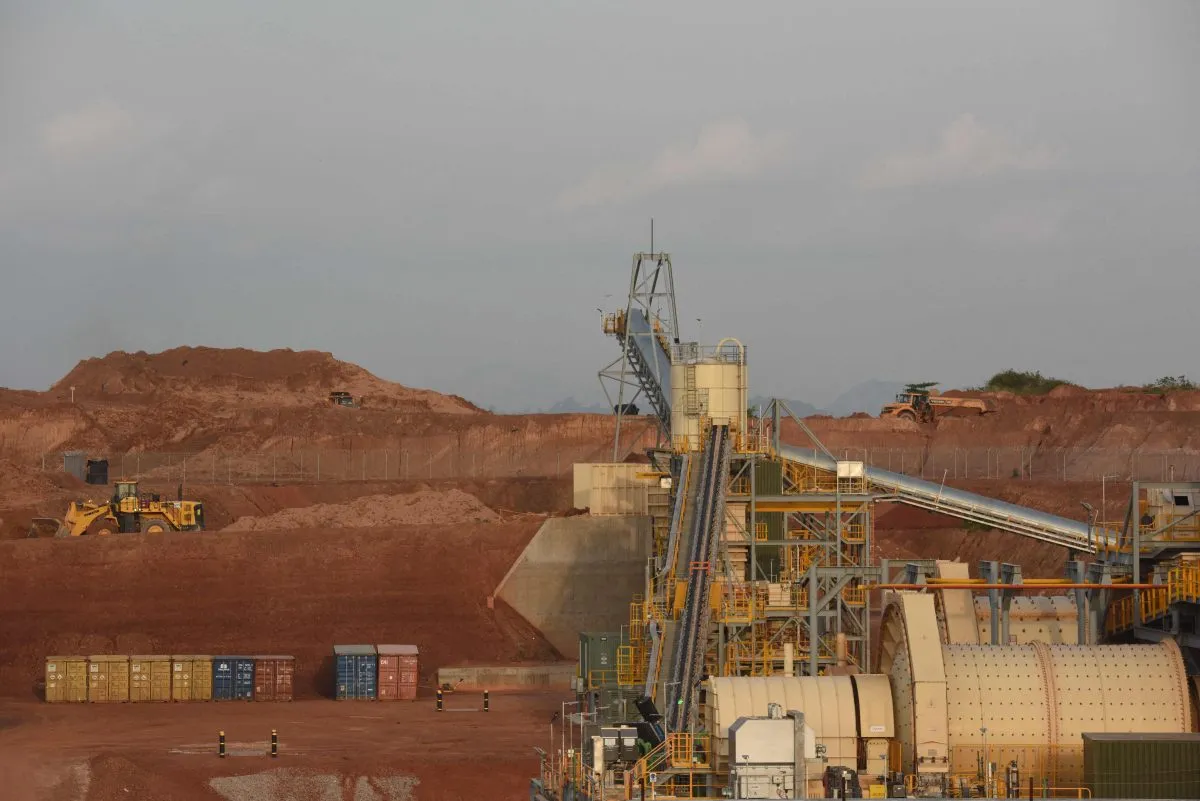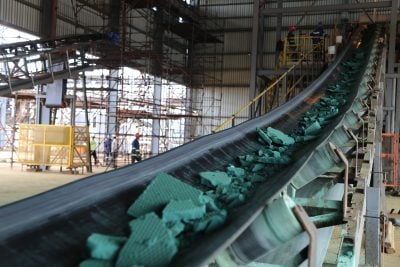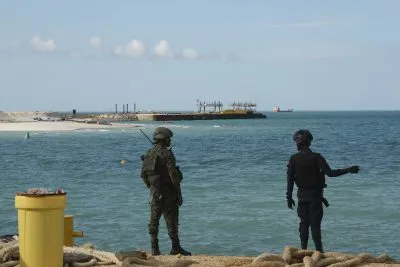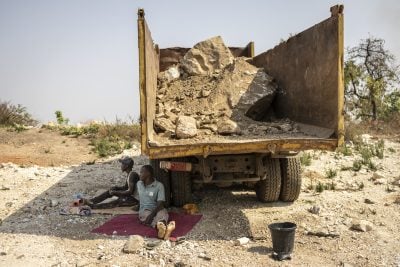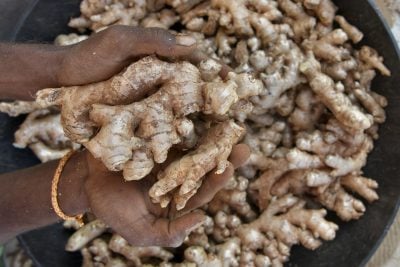Critical minerals are non-fuel minerals that are essential to specific supply chains, including for weapons systems, renewable energy, advanced electronics and medical devices. There is no universally agreed list of which minerals are regarded as critical but many well-established materials, such as chromium, cobalt, graphite, lithium, manganese, nickel, platinum, titanium and zinc, tend to be regarded as such. Lesser-known minerals include bismuth, which is valuable in atomic and medical research; germanium, for use in fibre optics and night-vision applications; and terbium, used in permanent magnets, fibre optics and lasers. The US Geological Survey published its updated list of 50 critical minerals in 2022.
Rare earths are a specific category of 15 among these critical minerals; some, such as cerium and lanthanum, are in fact quite geologically common. Many are crucial for electric vehicles (EVs) and wind turbines, such as neodymium and praseodymium, which are used in very strong magnets.
Soaring demand
Consumption of these minerals looks set to rise for decades to come. Demand will double for nickel, triple for cobalt and rise tenfold for lithium 2022 and 2050, according to figures from the International Energy Agency. Global demand for rare earths is also forecast to rise from 125,000 tonnes in 2021 to 315,000t by 2030, according to the Brookings Institution.
African mines have provided a large but uncertain proportion of the critical minerals that have driven the growth of global EV production and other new industries. The IMF estimates that sub-Saharan Africa holds about 30% of global proven critical mineral reserves. South Africa, Gabon and Ghana share 60% of global manganese production, while Guinea controls the global supply of bauxite, which is the raw material for aluminium production.
One of Africa’s biggest advantages is the wide range of lithium reserves at its disposal. The continent currently has about 5% of proven global reserves, but with limited exploration so far, the real figure could be much higher. At least nine lithium mining projects are, however, already under development in Africa: in DR Congo, Ghana, Mali, Namibia and Zimbabwe.
Although the African continent is believed to hold large reserves of rare earths, these have also seen limited exploration. But the first projects are being developed: South Africa’s Steenkampskraal mine contains 15 different elements, including large deposits of neodymium and praseodymium, and is expected to come into production in the first quarter of 2025. In neighbouring Namibia, Australia’s Bannerman Energy holds a 41.8% stake in Namibia Critical Metals, which produces 2,000 tonnes a year of dysprosium and terbium in its Lofdal heavy rare earths project.
China’s role in Africa’s critical minerals sector
According to US think tank the Wilson Center, Chinese mining companies represent about 8% of Africa’s mining output and this is less than half the output of the company Anglo-American alone; but Chinese investment has been focused on critical minerals. Chinese mining companies have invested particularly heavily in DR Congo, to secure access to commodities in return for infrastructure investment. Last year, Kinshasa challenged Sinohydro and China Railway Group over the lack of roads and hospitals built under their agreements; the companies signed new deals in March. These retain the Chinese companies’ 68% stake in the Sicomines cobalt and copper joint venture with DR Congo’s state mining company Gecamines, in return for paying 1.2% of all revenues to Kinshasa and allowing Gecamines to market a third of Sicomines’ production, apparently in lieu of the construction obligation.
Another Chinese firm, CMOC, struck a similar deal last year, agreeing to pay Gecamines $800m by 2028, plus $1.2bn in dividends over the lifetime of its Tenke Fungurume cobalt and copper operation, which produces 12% of the world’s cobalt.
After it opened its Kisanfu mine in DR Congo in mid-2023 CMOC overtook Glencore to become the world’s largest producer of cobalt, with annual production jumping 174% to 55,526 tonnes; global consumption is 213,000 tonnes. The importance of cobalt to EVs is underlined by the fact that Chinese battery producer CATL owns a minority stake in Kisanfu.
Zimbabwe is the world’s sixth-largest lithium producer, with Zhejiang Huayou Cobalt investing $300m in the Arcadia lithium mine and Zhejang Huayou Cobalt, Sinomine Resource Group and Chengxin Lithium Group all buying lithium assets in the country. The government of Zimbabwe hopes to use the reserves to kickstart a supply chain for domestic battery manufacturing and perhaps even EV production. China’s Tsingshan Holdings plans to build a lithium ore processing plant in Bulawayo and already operates a ferrochrome smelter in the country. It has agreed to help upgrade the country’s railway network to enable wider mine development.
African governments are not going far enough
The African focus on critical minerals has been in place for many years. The African Mining Vision (AMV), for instance, was agreed back in February 2009, with a call for “transparent, equitable and optimal exploitation of mineral resources to underpin broad-based sustainable growth and socio-economic development”.
It is only fairly recently, however, that African governments have taken more active policy measures to position critical minerals supply within global supply chains and in light of domestic demand. For instance, Zimbabwe in December 2022 banned the export of raw lithium to ensure that more of the mineral’s supply chain benefits are retained within the country. On the demand side, Ethiopia recently banned the import of non-electric vehicles, which it hopes will spur local EV demand.
Morocco – the only country in North Africa with its own supplies of EV battery metals – is attempting to build its own closed loop EV supply chains to pivot its existing automotive industry to EVs. Moroccan company Managem now supplies BMW with 20% of its cobalt requirements. Morocco’s existing automotive industry focuses on supplying vehicles to the EU market and so it is well placed to benefit from the EU’s wholesale switch to EVs.
An April 2023 agreement between DR Congo and Zambia aims to facilitate the joint development of the value chain in the electric battery and clean energy sectors through EV special economic zones (SEZs) that will make use of locally-produced critical minerals. Two automotive SEZs in Zambia and DR Congo are to bring together all parts of the supply chain, including battery precursors, batteries and EV manufacturers.
Pan-African infrastructure developer Arise Integrated Industrial Platform is completing pre-feasibility studies on the projects, while the United Nations Economic Commission for Africa (UNECA) is acting as technical advisor. Each project will be operated by a public-private consortium with international or multilateral support, such as from Afreximbank’s impact fund subsidiary, the Fund for Export Development in Africa. The choice of the two countries is no coincidence. DR Congo controls 88% of global supplies of cobalt, while the two countries jointly account for 11% of global copper supply.
While these are all welcome developments and aspirations, the question remains of to what degree Chinese firms will also follow these trends and support African countries to make the most of the critical minerals that they produce. Right now, there is concern that China’s domestic supply chains are so efficient and well-calibrated that for a Chinese corporation it is hard to prove a case for value addition on the African continent. Perhaps the forthcoming FOCAC meeting in September 2024 in Beijing will provide some incentives or policy directions to shift the dial in Africa’s direction.
Want to continue reading? Subscribe today.
You've read all your free articles for this month! Subscribe now to enjoy full access to our content.
Digital Monthly
£8.00 / month
Receive full unlimited access to our articles, opinions, podcasts and more.
Digital Yearly
£70.00 / year
Our best value offer - save £26 and gain access to all of our digital content for an entire year!

 Sign in with Google
Sign in with Google 